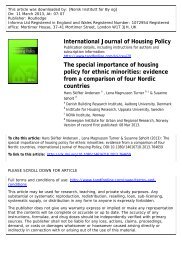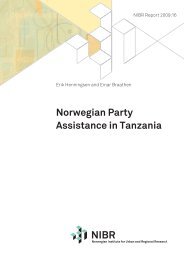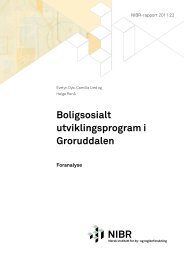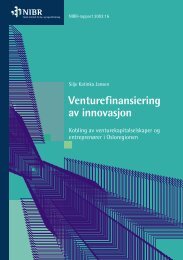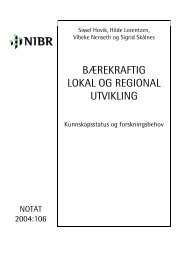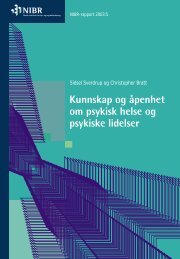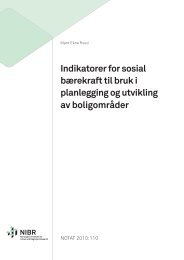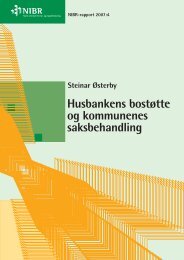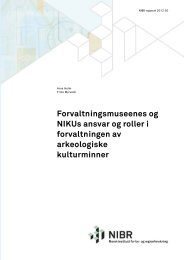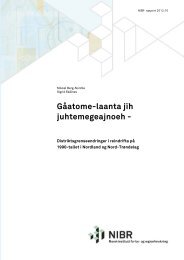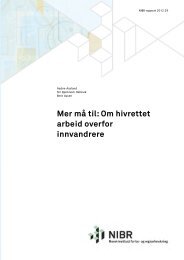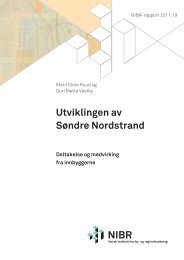Bangladesh Mahila Parishad - Norad
Bangladesh Mahila Parishad - Norad
Bangladesh Mahila Parishad - Norad
- No tags were found...
You also want an ePaper? Increase the reach of your titles
YUMPU automatically turns print PDFs into web optimized ePapers that Google loves.
121.1 MethodologyData collection has been based mainly on groups interviews at the BMP head officein Dhaka, with volunteers and staff from most sub-committees taking part in thediscussions. In addition, central committee members took part in a half-dayworkshop to assess results and challenges. The review collected data from a numberof stakeholders in two districts. These stakeholders included district executivemembers, members of primary committees, UP members, members from the localadministration and civil society representatives. Although BMP members andvolunteers were women, many of the secondary stakeholders were men, such as UPmembers, administrative staff, and civil society members.The selection of Sunamganj and Belabo represent two of the high performers amongMBP districts. This means that the results found in these two districts illustrate whatcan be achieved with the present structure and staff of BMP. Belabo is an area inwhich BMP is very well established and where it has worked since the early 1980s.Sunamganj is a newer addition where BMP has worked since 2001.In addition, the team interviewed key informants who are familiar with the work ofBMP. The key informants had high-level positions in fields related to the work ofBMP and were in a position to share their analytical perspectives based on their longstanding interest in the field of gender and human rights.The team has approached this review as a learning exercise, intended to documentwhat BMP is doing, how it is doing it, and results, with the overall objective ofassessing if BMP is on track to achieving its objectives as these have been describedin the project proposal.1.2 BMP and its contextBMP is the oldest and largest women’s organization in <strong>Bangladesh</strong>. It was foundedby university students during the protests and war of liberation that resulted in theindependence of <strong>Bangladesh</strong> from Pakistan in 1972. The ideas from this formativeperiod of revolt against martial law, lack of democracy, islamization and conservativeideas have remained at the core of BMPs values.Civil society in <strong>Bangladesh</strong> has been strong, and builds on a long tradition of popularmobilization from the time of the liberation war. Lately, civil society has becomepoliticized, and professional organizations tend to be split along party lines. This hasmeant that the ability of civil society to engage the government with a united voicehas become diminished. Many donor funded civil society organizations have shiftedtheir focus from advocacy to service delivery or have taken a more cautious approachto advocacy. Since NGOs need to register and report to the NGO Affairs Bureauand the bureau can delay or withhold funding, the incumbent government hasleverage that could hold NGOs back from jeopardizing their service deliveryoperations. In this context, where the number of NGOs committed to advocacy hasbeen reduced, BMP has sustained advocacy as a core activity, making use of civil



